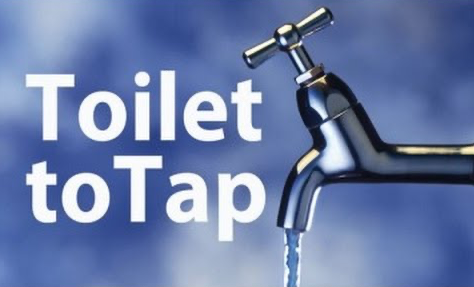By Haley Brown
FloridaPolitics.com
April 15, 2021
 A bill to reclaim Florida’s used water will head to the Governor’s desk. If signed, the legislation would compel Florida utility companies to submit plans by 2032 for cleaning and reusing water.
A bill to reclaim Florida’s used water will head to the Governor’s desk. If signed, the legislation would compel Florida utility companies to submit plans by 2032 for cleaning and reusing water.
The House passed the Senate’s version of a reclaimed water bill (SB 64) Wednesday 118-0. The Senate already passed the legislation 39-0 in March.
Gov. Ron DeSantis’ prioritization of Florida’s water systems in the past might offer a clue as to whether he will sign this bill. In September he announced $1.1 million toward a reclaimed water project benefiting Wekiwa and Rock springs.
Last Session DeSantis signed the Clean Waterways Act (SB 712), referring to the legislation as “probably the most comprehensive bill we’ve seen in quite some time” during a ceremonial signing in Juno Beach.
He also signed legislation (HB 1091) raising all sewage spill fines by at least 50% and many civil penalties by 100%.
Despite the support so far, the bill could still raise some eyebrows. While reclaiming sewage for potable uses has been deemed safe, in some instances even safer than other water reclamation processes, it still carries a public ick-factor. The practice is colloquially referred to as toilet-to-tap.
Former Gov. Rick Scott vetoed previous legislation seeking toilet-to-tap programs.
The city of Tampa received public backlash when it first proposed a so-called toilet-to-tap program under former Mayor Bob Buckhorn. His successor, Mayor Jane Castor, ultimately scrapped it from her historic sewage plan. However, the city is again, quietly, considering the practice.
But pressing population growth in Florida may be the impetus needed to push the state toward reclaimed water. Florida’s population is expected to grow 23% between 2020 and 2040, and the state’s water demands are expected to grow 15%, to 7.4 billion gallons per day. The goal of the bill is to add more water sources to keep up with water usage among Florida’s growing population, according to the bill’s analysis.
Under the bill, utilities would submit plans to the Department of Environmental Protection (DEP) to begin “eliminating non-beneficial surface water discharges” by making that water safe to drink. It means used water, including sewage, would be cleaned and turned into drinking water.
Florida already allows for reclaimed water usage, but for limited purposes, such as watering lawns and other non-potable uses.
The bill also incentivizes the development of public-private toilet-to-tap projects by offering expedited permits and priority funding from the Drinking Water State Revolving Fund and water management district cooperative funding.


How about Toilet-to-Dasani plant?